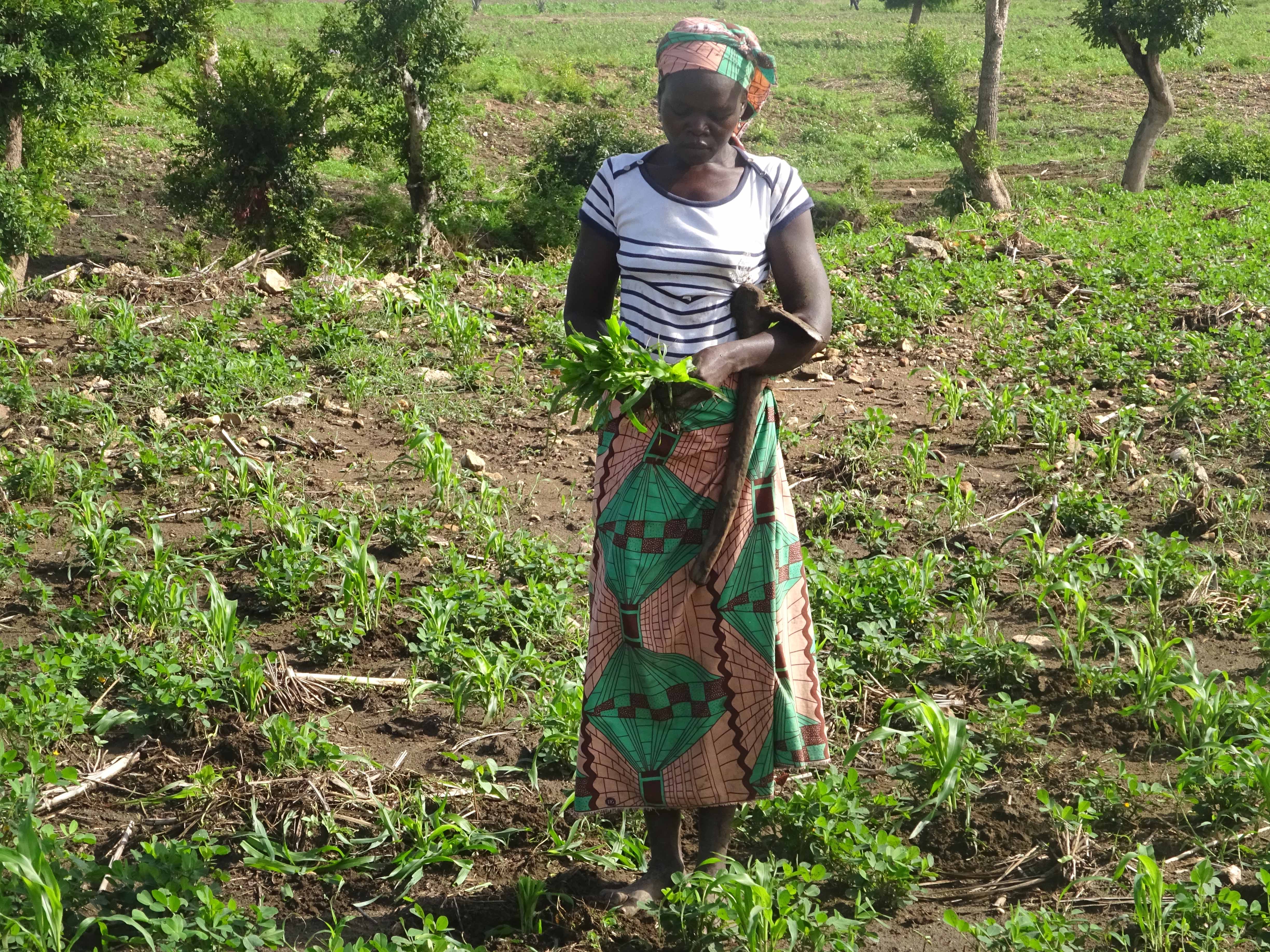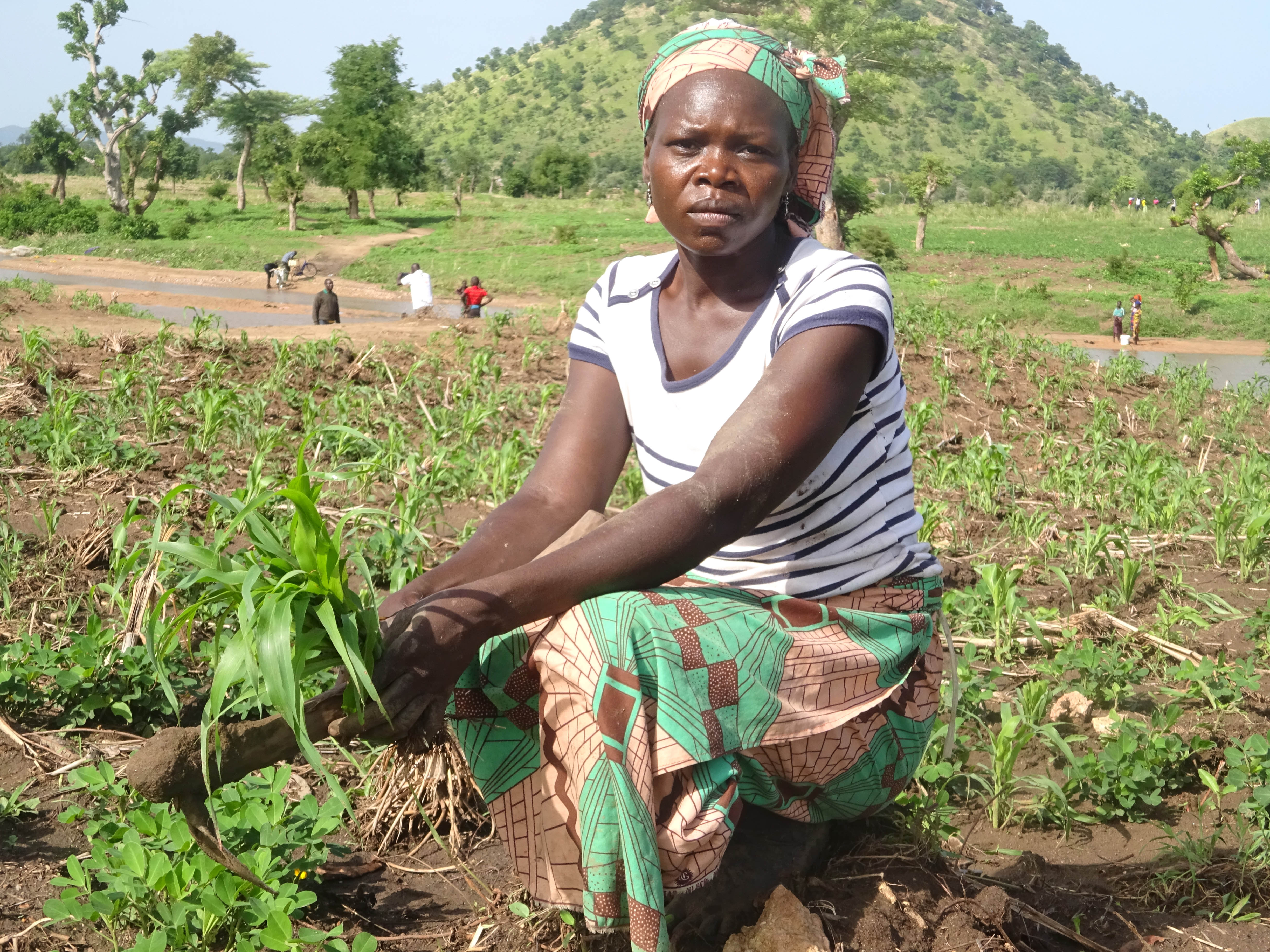40-year-old Esther sadly lost her husband when Boko Haram militants violently attacked her village in Nigeria.
A day that she talks about with a lot of sadness. Speaking to IEDA Relief, ShelterBox’s implementing partner in Cameroon, she said: “We were at home eating together and planning a journey to a nearby village for a ceremony. Then suddenly, armed men broke the door of our house and entered. We immediately knew who they were, so I knelt to beg them. They took my husband and killed him.”
Esther explained that despite the violence of that crime, she did not have the opportunity to cry for her husband. She just ran for her life with her children.
“We were so shocked to see him dying, we started shouting. They threatened that we would follow him if they heard us again”, she said.
“The last thing I remember was that I found myself with people who were also running. Then we reached Cameroon.”

Once they had reached safety, Esther and her children were taken to Minawao camp. She said once they arrived, they were faced with extremely difficult conditions. “We had to live with hundreds or thousands of people, all in the same place for months. It was just unbelievable. The children were crying all of the time, I did not know if I would survive, but we had no choice.”
Months later, the family were relocated to a tent. They were also given some essential aid items which enabled them to start rebuilding their lives. “When we received the shelter and the extra items our life changed considerably. We could live as a family and had basic items for our daily life”.
Although she had shelter for her family and some essentials, Esther said she still struggled to find enough food for her family. One day it was so bad they went without food because of a delay in food assistance.
“My children cried so much that day that I had to beg my neighbours for food to give them. Unfortunately, no one could help me as they were in the same situation. I then decided to do something to avoid this from happening again in the future.”

In her previous life in Nigeria, Esther was a farmer. She decided to use her skills to make money so her children could eat. She found some women who knew about some farming work in the camp, but they said conditions were not great. “They told me there was no soil available for refugees inside the camp, but there were people in nearby villages with soil for rent. I didn’t have any money to start growing so I started fetching wood I could sell until I got enough money.”
It wasn’t long before Esther started growing her own crops. By early 2019, she was into her fourth year of farming in the camp.
After every harvest, Esther divides her crops into two, for family and for sale.
“When I harvest, I take some home that we use for food. We cook so much with it. I use the money I make to take care of the children, their clothing and treatment when they are sick. Next year I want them to start school, so it will help me for what school needs”, explained Esther.
So far, farming has been going well for Esther and she is happy doing it, she told the team it really helps her to feel some independence after receiving humanitarian assistance.
“I am happy growing plants here, it helps my family and we are not as dependant as we used to be.”
RESPONDING RIGHT AROUND THE WORLD
Stay up to date with our ongoing work around the world by watching our weekly Operations Update — shared onto our Facebook page every Wednesday morning.
